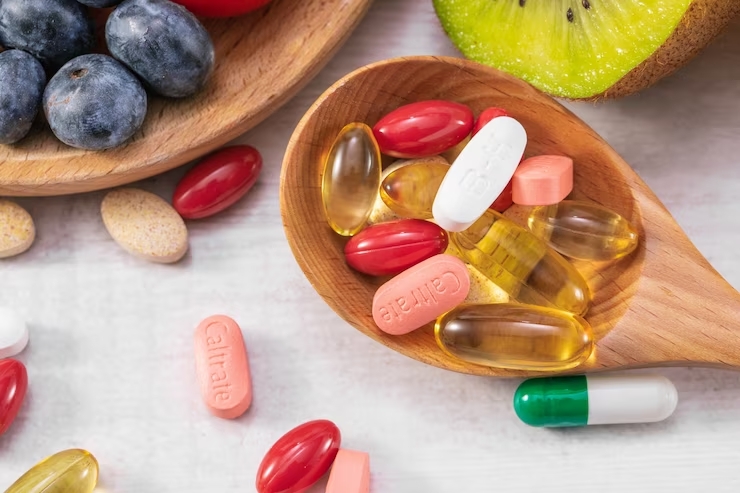Oxygen is a vital element for human survival, and maintaining adequate levels of oxygen in the blood is crucial for overall health and well-being. While proper breathing techniques, regular exercise, and a balanced diet play key roles in maintaining healthy oxygen levels, some individuals may seek additional support through supplements. In this article, we'll explore various supplements and strategies that can potentially help increase oxygen levels in the blood.
Understanding Blood Oxygen Levels
Before delving into supplements, it's important to understand the significance of blood oxygen levels. Oxygen is transported in the bloodstream by hemoglobin, a protein in red blood cells. Normal blood oxygen saturation levels typically range from 95% to 100%. Levels below 90% may indicate hypoxemia, a condition characterized by insufficient oxygen in the blood, which can lead to fatigue, shortness of breath, and other health issues.
Supplements to Consider
- Iron Supplements: Iron is an essential mineral that contributes to the formation of hemoglobin. Adequate iron levels are crucial for transporting oxygen from the lungs to body tissues. Iron deficiency can lead to anemia, causing reduced oxygen-carrying capacity in the blood. If you suspect iron deficiency, consult a healthcare professional before considering iron supplements.
- Vitamin B12: Vitamin B12 plays a role in red blood cell formation and is essential for maintaining healthy blood oxygen levels. Deficiency in B12 can lead to anemia and reduced oxygen-carrying capacity. Vegetarians and older adults are at a higher risk of B12 deficiency and might benefit from supplementation.
- Copper: Copper is involved in iron metabolism and hemoglobin production. It aids in the absorption and utilization of iron, contributing to overall blood health. A balanced diet rich in copper-containing foods can help maintain optimal copper levels.
- Vitamin C: Vitamin C enhances iron absorption from plant-based sources. By promoting better iron uptake, vitamin C indirectly supports oxygen transport in the blood. Including vitamin C-rich foods in your diet can be effective in improving iron absorption.
- Chlorophyll Supplements: Chlorophyll is a compound found in plants that helps convert sunlight into energy through photosynthesis. Some proponents suggest that chlorophyll supplements may assist in increasing oxygen levels in the blood. However, further research is needed to establish a direct link between chlorophyll supplementation and blood oxygenation.
- Adaptogenic Herbs: Certain adaptogenic herbs, like ginseng and rhodiola, are believed to support overall oxygenation and energy levels in the body. These herbs are thought to help the body adapt to stress and enhance oxygen utilization. While anecdotal evidence exists, scientific research on their precise effects is ongoing.
- Beetroot Supplements: Beetroot is rich in nitrates, compounds that can enhance blood flow and oxygen delivery. Some studies suggest that beetroot supplements or beetroot juice may improve exercise performance and oxygen utilization. However, individual responses may vary, and consulting a healthcare professional is advisable.
- Cordyceps Supplements: Cordyceps is a type of fungus with potential benefits for respiratory health. It's believed to improve oxygen utilization and lung function by increasing the body's ability to extract oxygen from the air. While research is still evolving, cordyceps supplements may be considered as part of a holistic approach to respiratory well-being.
Conclusion
While supplements can potentially aid in maintaining healthy oxygen levels in the blood, they should be used judiciously and under the guidance of a healthcare professional. Prior to starting any supplement regimen, it's essential to assess your overall health, diet, and lifestyle habits. Remember that supplements should complement a balanced diet and a healthy lifestyle, rather than serve as a sole solution.
Incorporating iron, vitamin B12, vitamin C, and copper-rich foods in your diet can support healthy blood oxygenation. Additionally, engaging in regular physical activity, practicing deep breathing exercises, and maintaining proper hydration can further enhance oxygen delivery to tissues.
If you suspect any deficiencies or experience persistent symptoms of low blood oxygen levels, consult a healthcare provider for accurate diagnosis and personalized recommendations. Ultimately, a holistic approach to health that includes proper nutrition, exercise, and medical guidance is key to maintaining optimal blood oxygen levels and overall well-being.

